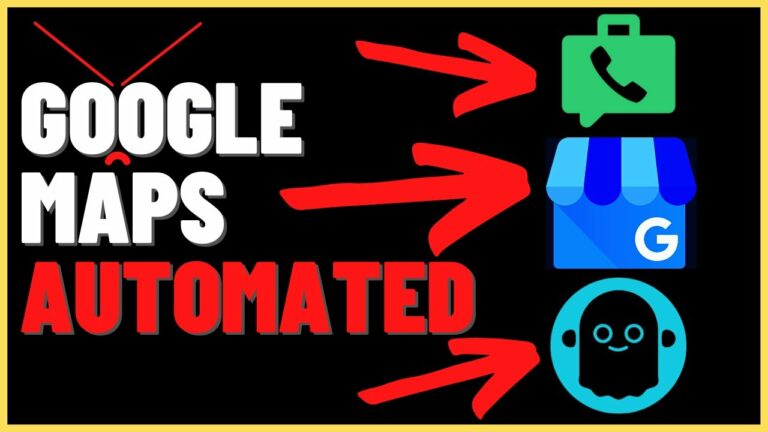Comment with the word “AI” and I’ll DM it to you
If you’re looking to learn more about how to make money online, this article is for you. The name of the game is “Comment with the word ‘AI’ and I’ll DM it to you.” The content of the video by Shinefy showcases how you can make over $30,000 in a month and how you can get started for free, making over $10,000 a month even as a beginner. Simply leave a comment with the word “AI” to receive the full step-by-step guide for free.
The video emphasizes the potential for financial success through utilizing artificial intelligence (AI) and provides a unique opportunity for viewers to access valuable training. By simply commenting with the word “AI,” you can receive a direct message with all the information you need to get started on your journey towards making significant income online.

Introduction
Artificial Intelligence (AI) is a transformative technology that has been shaping various aspects of our daily lives. From personalized recommendations on streaming platforms to autonomous vehicles, AI has significantly impacted industries across the board. This article aims to delve into the world of AI, exploring its history, types, applications, ethical considerations, challenges, regulations, workforce implications, and future advancements.
History of AI
Origins of AI
The concept of AI dates back to ancient times, with myths and legends depicting the creation of artificial beings with human-like qualities. However, the modern era of AI began in the 1950s with the work of pioneers such as Alan Turing and John McCarthy. These early efforts laid the foundation for the development of AI as we know it today.
Development over the years
AI has experienced rapid advancements over the years, fueled by breakthroughs in computing power, data availability, and algorithmic innovations. From the early days of rule-based systems to the emergence of machine learning and deep learning techniques, AI has evolved to tackle increasingly complex tasks and challenges.
Types of AI
Narrow AI
Narrow AI, also known as weak AI, refers to systems designed to perform specific tasks or solve particular problems. Common examples include virtual assistants, image recognition software, and recommendation algorithms. Narrow AI excels at the tasks they are programmed for but lack the general intelligence and adaptability of human cognition.
General AI
General AI, often referred to as strong AI, is the hypothetical concept of a machine that possesses human-like cognitive abilities. This form of AI would have the capacity to understand, learn, and apply knowledge across a wide range of domains. General AI remains a distant goal and raises significant ethical and existential questions.
Super AI
Super AI, or artificial general superintelligence, is an even more advanced form of AI that surpasses human intelligence in all areas. This level of AI, if achieved, could have profound implications for society and the future of humanity. The development of super AI is a topic of intense debate among researchers and policymakers.
Applications of AI
Healthcare
AI has revolutionized the healthcare industry by enabling faster and more accurate diagnosis, personalized treatment plans, and drug discovery. From medical imaging analysis to predictive analytics, AI-powered technologies are enhancing patient care and driving medical research.
Finance
In the financial sector, AI is used for fraud detection, risk assessment, algorithmic trading, and customer service. Machine learning algorithms analyze vast amounts of data to identify patterns and trends, enabling financial institutions to make more informed decisions and improve operational efficiency.
Retail
AI is transforming the retail industry through personalized recommendations, inventory management, supply chain optimization, and customer service chatbots. By leveraging AI-powered tools, retailers can enhance the shopping experience, streamline operations, and drive sales growth.
Automotive
In the automotive sector, AI plays a crucial role in the development of autonomous vehicles, driver assistance systems, and predictive maintenance solutions. AI algorithms process sensor data to help vehicles navigate safely, detect road hazards, and optimize performance.
Ethical Considerations in AI
Bias in AI
AI systems can unintentionally perpetuate biases present in the data used to train them, leading to discriminatory outcomes. Addressing bias in AI requires a proactive approach to data collection, algorithm design, and model evaluation to ensure fair and equitable results.
Privacy concerns
The widespread use of AI raises concerns about data privacy and security. As AI systems collect and analyze massive amounts of personal information, there is a need to establish robust data protection measures and transparency protocols to safeguard individual privacy rights.
Job displacement
The automation of tasks by AI technologies has the potential to disrupt labor markets and lead to job displacement in certain industries. It is essential to assess the impact of AI on the workforce and implement policies that support retraining and transition programs for displaced workers.
Challenges in AI Development
Lack of data
AI algorithms require large volumes of high-quality data to learn and make accurate predictions. The scarcity of labeled data in certain domains presents a significant challenge for AI development, hindering the performance and scalability of AI systems.
Interpretability
The black-box nature of some AI algorithms poses challenges in understanding how decisions are made and explaining the rationale behind AI-powered recommendations. Increasing the interpretability of AI models is crucial for building trust and ensuring accountability in AI applications.
Security risks
AI systems are vulnerable to cybersecurity threats such as adversarial attacks, data breaches, and model poisoning. Safeguarding AI infrastructure against malicious actors requires robust security measures, including encryption, access controls, and regular vulnerability assessments.
Future of AI
Predictions for AI advancements
The future of AI holds tremendous potential for innovation across various fields, including healthcare, finance, transportation, and education. Advances in AI research are expected to drive breakthroughs in natural language processing, robotics, autonomous systems, and personalized medicine.
Potential impact on society
As AI becomes more integrated into everyday life, its impact on society will continue to evolve. While AI offers numerous benefits in terms of efficiency, convenience, and productivity, it also raises ethical dilemmas, privacy concerns, and challenges related to job displacement. Finding a balance between innovation and responsible AI deployment will be crucial for shaping a sustainable future.
AI Regulations
Current regulatory landscape
Governments around the world are actively developing regulations to govern the use of AI technologies and mitigate potential risks. Current regulatory frameworks encompass data protection laws, algorithmic transparency requirements, and guidelines for AI ethics to ensure the responsible development and deployment of AI systems.
Proposed regulations
Proposed regulations aim to address emerging challenges in AI governance, including bias mitigation, accountability standards, and human oversight of AI decision-making. Policymakers are exploring regulatory mechanisms to promote transparency, fairness, and safety in AI applications while fostering innovation and competitiveness.
Impact of AI on the Workforce
Automation of tasks
AI-driven automation is reshaping the nature of work by augmenting human capabilities and streamlining repetitive tasks. While automation can enhance productivity and efficiency, it also raises concerns about job displacement and the redefinition of skill requirements in the labor market.
Upskilling and reskilling initiatives
To address the challenges posed by automation, upskilling and reskilling initiatives are essential for preparing the workforce for the future of work. Continuous learning, training programs, and collaboration between employers, educational institutions, and policymakers can help workers adapt to technological changes and thrive in a digital economy.
Conclusion
In conclusion, Artificial Intelligence is a transformative technology with far-reaching implications for society, economy, and governance. As AI continues to advance and permeate various industries, it is essential to address ethical considerations, regulatory challenges, and workforce impacts to ensure a human-centric AI future. By fostering collaboration, innovation, and responsible AI deployment, we can harness the full potential of AI to create a better and more sustainable world for all.
Comment with the word “AI” and I’ll DM it to you









